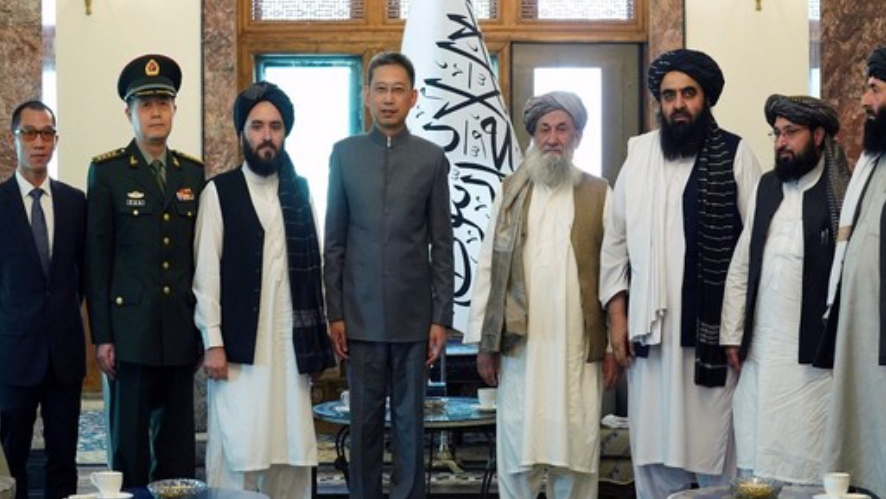"Chai, Samosas, and Statesmanship: U.S. Elections through the Eyes of JNU"
- SIS Blog

- Nov 12, 2024
- 4 min read
By Madhulika, Snehil Shukla, Sayantan Bandyopadhyay, Nadeem Iquebal, Chandan Kamath, Vijaylaxmi Pal
At the heart of Jawaharlal Nehru University (JNU), Ganga Dhaba stands humbly as a buzzing hub of ideas and debate, where conversations flow as freely as the chai and debates echo into the cool evening air. Small in structure but immense in significance, Ganga Dhaba serves as a gathering ground for students, faculty, research scholars, and visitors alike, drawn in by its affordable tea and snacks, priced to be accessible to all. More than just a spot for late-night refreshments, it has become an enduring symbol of JNU's ethos of intellectual freedom, critical dialogue, and democratic spirit.
Originally established in the 1980s by Bharat Tomar as a humble tea stall, Ganga Dhaba swiftly evolved into a central hub for the university community, where students engage in passionate debates on subjects ranging from Marxism and feminism to caste politics and foreign policy, often continuing late into the night. “Despite its modest size, Ganga Dhaba has preserved its affordability, with a cup of chai costing just Rs. 10 and an aloo paratha also at Rs. 10, ensuring it remains accessible to students from all walks of life,” shared Harish, the current shop manager.
This unassuming eatery has been frequented by some of India’s most influential intellectuals and politicians during their formative years in JNU, many of whom credit their political awakening to the late-night discussions at Ganga Dhaba. Figures like Sitaram Yechury, Nirmala Sitharaman, and S. Jaishankar, have all spent evenings immersed in debate here, surrounded by fellow students as eager to discuss the intricacies of global affairs as they were to unpack domestic issues. For those who sat on these stone benches with steaming cups of chai, Ganga Dhaba was nothing less than an open classroom where ideas could be tested, arguments refined, and perspectives broadened.

More than a place for debates, Ganga Dhaba is a sanctuary for dissent and activism, integral to JNU’s culture of social and political engagement. When the university administration threatened to close it for nonpayment of dues, modernization, and hygiene reasons, students rallied to preserve it. To them, the Dhaba was more than a food joint—it was the heart of campus life, embodying camaraderie, learning, and resilience.
With the U.S. presidential elections taking centre stage, Ganga Dhaba has become a hub for lively discussions. On the night of November 5th, doctoral scholars gathered at the Dhaba, sipping chai and munching on samosas, as they debated how the election’s outcome might impact India's future. Nikhil Biswas from the Centre for African Studies, School of International Studies, sipped his coffee while passionately endorsing Trump. He argued that Trump’s approach, particularly on Syria, favoured stability by leaving it to Russia, and he dismissed the possibility of the U.S. embracing a female president anytime soon.

Nearby sat Dhirendra Kumar of the Centre for South Asian Studies, who countered Nikhil’s view with his support for Kamala Harris. He appreciated her inclusive policies and her Indian heritage, which he believed could foster stronger ties with India. Dhirendra highlighted what he saw as Trump’s patriarchal stance, restrictive immigration policies, and the hurdles he posed for Indians pursuing education and work in the U.S. The debate intensified as Nikhil defended Trump’s appeal to everyday Americans facing high living costs and job crises.
Nitish Kumar, a Ph.D. scholar from the Centre for Russian and Central Asian Studies, then chimed in, drawing attention to the potential disruptions in trade policy under another Trump presidency. He explained that Trump has previously labelled India a “Tariff King” and a “very big abuser” in trade, pointing out that India’s average tariff rate of 17% far exceeds those of Japan, the U.S., and the EU. Alok, who stood beside him sipping a bottle of Lahori Zeera, added that Trump’s “America First” policy had already led to tariffs on Indian steel and aluminium in his previous term. “That’s why I’m hoping for Kamala’s win,” he remarked.
As the discussion unfolded, some students from Jamia Millia Islamia, waiting for friends nearby, joined in. Their perspective added a sobering dimension to the conversation. One Jamia student remarked, “It doesn’t matter whether Kamala wins or Trump; the ongoing genocide in Gaza is likely to continue.” Another added, “I’m not interested in the U.S. election at all. It’s not going to do any good for the people of Palestine.”
The debate took a more reflective turn when an alumnus from the Centre for the Study of Social Systems joined, cautioning that renewed U.S.-China tensions could negatively impact India. He suggested that Trump’s relationship with American voters might see him through, even as he doubted Harris’s call for “a new generation of leaders” would resonate.
As the night grew colder, Sankhar Da, the owner of the neighbouring saloon, strolled by, musing, “It doesn’t matter who wins as long as there’s a peaceful transition of power.” His words brought a calm end to the conversation, underscoring the Dhaba’s role as a democratic space where diverse opinions clash yet ultimately converge around a shared commitment to India’s future in a complex global order. In this spirited corner of JNU, students blend the personal with the political as they refine their perspectives on international relations, blending the personal with the political.
This is an Original Contribution to the SIS Blog.
Sayantan Bandyopadhyay, Madhulika, Nadeem Iquebal, Snehil Shukla, Vijaylaxmi Pal, and Chandan Kamath are Doctoral Research Scholars at the School of International Studies, JNU.
















